Smartphones Are Doomed—Musk, Gates & Zuckerberg Sound the Alarm
Clash of tech titans: Will smartphones survive?
Elon Musk, Mark Zuckerberg, Sam Altman and Bill Gates predict that the smartphone is on its last legs and could be displaced by new and innovative devices. Tim Cook from Apple, on the other hand, defends the continued importance of the smartphone.
Elon Musk and the bold leap from Neuralink
Musk’s vision for devices includes a brain scan linked to machines. Neuralink is working on a brain-computer interface with which devices can be operated by telepathy. The first tests with human implants are promising and could make smartphone screens superfluous (Daily Galaxy).

Mark Zuckerberg’s short-sighted augmented reality projection
Zuckerberg’s vision focuses on AR glasses, which replace the smartphone and are currently the focus of meta. The aim is to reduce dependence on handheld devices by 2030 by projecting digital content into the user’s field of vision (Glass Almanac).
Transformative steps from Altman
As reported, Sam Altman from OpenAI has a vision for AI interfaces that could replace smartphones, although the details remain vague at the moment. Traditional devices could be challenged by more natural forms of interaction enabled by AI.
Gates’ health monitors
The electronic tattoos endorsed by Bill Gates that enable health monitoring and communication are supported by Chaotic Moon. As mentioned in the news, these could be a means of bypassing smartphones and integrating technology on a more physical level.
Cook’s focus on smartphones
According to The Glass Almanac, Tim Cook defends smartphones with the integration of AI into Apple’s iPhone 16. He foresees a new development alongside smartphones that meet user needs of users.
Hypothetical consequences
Smartphones are challenged by disruptive competition and incremental improvements from rival technologies. The question of whether users focus on innovation or convenience alongside the contested role will determine the outcome.
Between disruption and evolution
Between the two extremes – usefulness and redundancy – there is a controversial discourse in industry circles about the rapidly changing technological landscape. Elon Musk and Mark Zuckerberg, Sam Altman and Bill Gates see an imminent end to the smartphone era, while Tim Cook positions himself as an unwavering advocate of utility, steering the discourse between disruption and iteration.

Elon Musk and the bold leap from Neuralink
Elon Musk is working on Neuralink, which enables users to control devices with their thoughts through the integration of brain-computer interfaces. The design of such devices is already being tested with two test subjects and is intended to make physical interfaces, such as smartphone screens, superfluous. In Musk’s proposed vision, handheld devices could become redundant as the technology would create a direct connection and interface with the human mind (Daily Galaxy).
Mark Zuckerberg’s short-sighted augmented reality projection
Mark Zuckerberg of Meta predicts that augmented reality (AR) glasses will make smartphones obsolete by 2030. With these glasses, users could see augmented digital information that blends seamlessly into their physical environment, blurring the boundaries between the two worlds. Such a development could reduce the overall reliance on smartphones while making data processing a more immersive, intuitive experience and moving the user interface into the user’s environment (Glass Almanac).
The post-smartphone world of Sam Altman
The post-smartphone world envisions infrastructure breakthroughs to which Sam Altman of OpenAI is expected to contribute. Although details of his contributions remain vague, his involvement in the field of artificial intelligence hints at efforts to create systems that integrate AI to interact with users in a contextual and intuitive way. Such advances could undermine the dominance of conventional smartphones (The News).
Bill Gates and the growth of electronic tattoos
With Chaotic Moon, Gates is exploring one of the alternatives in the form of electronic tattoos that can receive, send and relay data, such as health monitoring, GPS tracking and even communication. The tattoos, which are still in development, are designed to embed technology under the skin, which Gates envisions would enable a future where the human body becomes a platform for technology and separate devices such as smartphones are no longer needed (The News).
Tim Cook’s plea for smartphones
Apple’s CEO Tim Cook vehemently disagrees with this position and once again emphasizes the continued importance of smartphones in and for everyday life. The recently introduced iPhone 16, which is equipped with advanced AI functions, is proof of Apple’s commitment to further developing the smartphone. Cook believes that these emerging technologies, such as AR and AI, are more likely to be complemented by smartphones, which will retain their central position in everyday life (Glass Almanac).
A philosophical divide
The technology industry has long struggled with a fundamental question: should innovation be pursued at all costs or should improvements be built around something that already exists. Gates, Musk, Zuckerberg and Altman are largely in favor of transformative technologies that can revolutionize how people interact with devices, while Apple, under Cook’s leadership, is focused on enhancing the capabilities of smartphones and infusing them with new technologies to bolster the old claim that the smartphone is the center of the tech universe (Indian Defense Review).
Barriers and acceptance of new technology
The barriers to consumer adoption, accessibility, ease of integration and ease of use play an important role in the willingness of users to adopt these new technologies. Legal and data protection issues pose particular hurdles. For example, electronic tattoos and brain implants raise significant data protection concerns from a bioethical perspective. In addition, AR glasses face practical challenges as they have to meet user comfort and battery life requirements (Daily Galaxy).
How Apple is integrating innovation
Through ease of use, Apple strives for simplicity and quality, as Cook emphasizes. At the same time, the company is actively exploring new technologies such as AR Vision Pro and potential rivals to Meta’s Ray Ban glasses. Nevertheless, Apple is gradually improving smartphone enhancements to ensure ease of use and a high level of functionality (Xataka).
What does the future hold for consumers?
The future of personal technology will depend on whether consumers opt for the bold tools or return to their familiar smartphones. The recent failures of AI hardware such as Rabbit R1 and Humane AI Pin show that new technologies need to offer clear and distinct added value to be adopted (Xataka). It is up to these tech giants to pursue their visions and the industry, along with consumers, must decide whether smartphones become obsolete or evolve and remain important tools.
- Daily Galaxy: Tech Titans Announce End of Smartphones, Cook Disagrees
- Glass Almanac: Musk, Gates, Zuckerberg, Altman on Smartphone Decline
- The News: Musk, Zuckerberg, Altman Declare Smartphone Era Over
- Indian Defence Review: Smartphone Future Debated by Tech Leaders, Cook
- Xataka: Musk, Gates, Zuckerberg, Altman vs. Cook on Smartphones







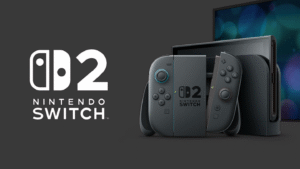
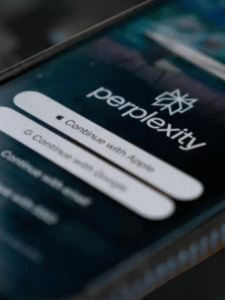


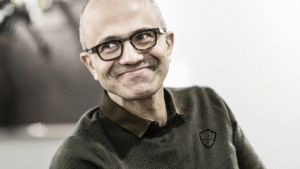
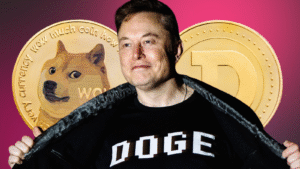

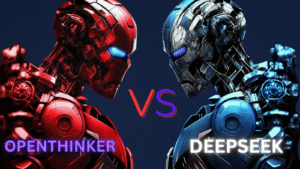
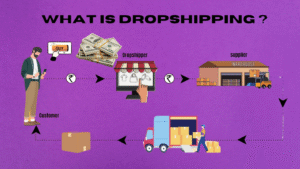

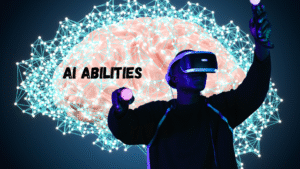
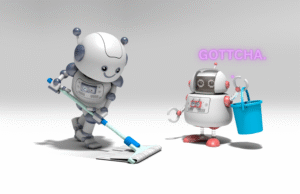

Post Comment